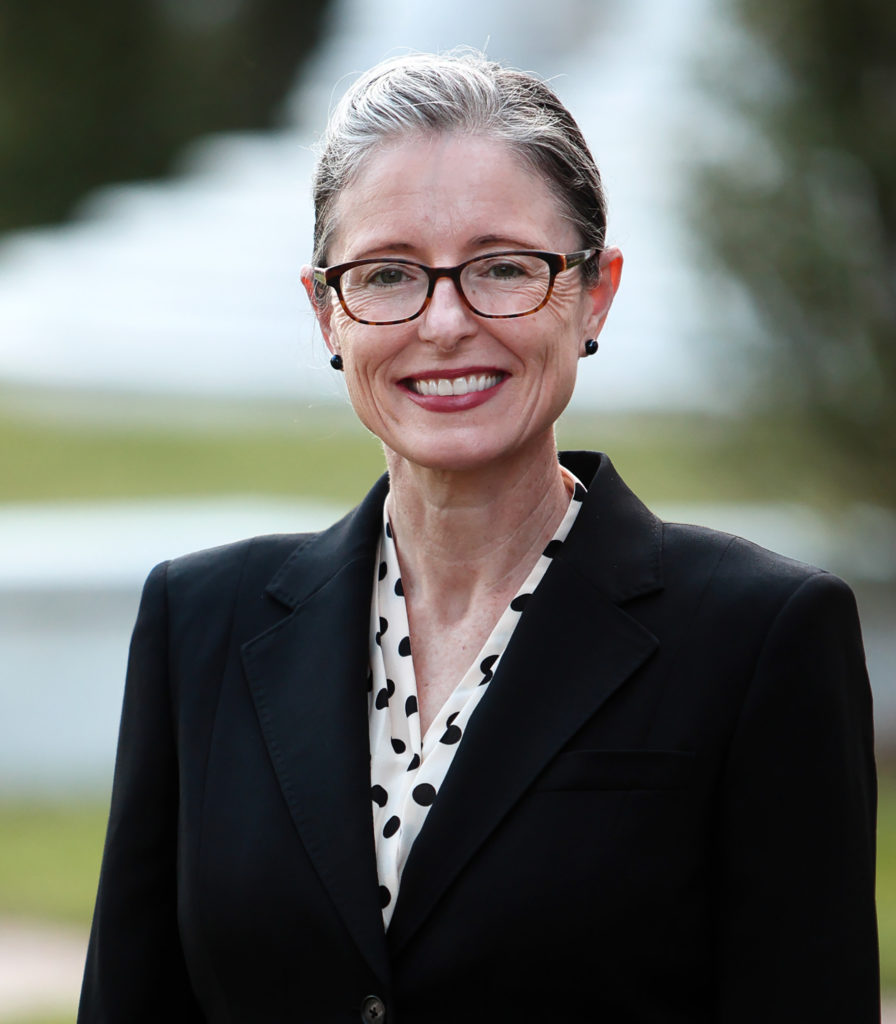A new program at Mercer Law School will meet a growing interest from students as well as a growing need from corporations. Beginning this fall, the Corporate Counsel Externship Program will pair students with companies, so they can get a taste of in-house legal work.
“In the last 20 years, the number of legal positions in-house has grown exponentially,” said Ben Parrish, who is leading the program. “In-house lawyers play increasingly important roles for companies. We want to make sure our students are aware of those opportunities and are able to develop those skills needed to be successful in that environment.”

Parrish practiced as an in-house lawyer for almost his entire career and retired from his position as Tractor Supply general counsel in 2021. He has served on Mercer Law’s Board of Visitors for several years but wanted to find other ways to give back to his alma mater after his retirement, he said. He taught a class on corporate governance in the spring, and discovering an unmet need, he pitched the idea of the Corporate Counsel Externship after hearing about a similar program at another university.
“Many more alumni are now working at in-house counsel offices, much more than in the past, and I have many current students who express interest in doing that for a career,” said Timothy Floyd, director of experiential education at Mercer Law. “So the chance to get real-world experience under the supervision of someone like Ben, it’s really meeting a need that our students have identified.”
Parrish said the new program would not have been possible without the assistance and support of Floyd; Interim Dean Karen Sneddon; Pamelia Wilkins, associate dean for academic affairs; and Tre Dekle, assistant director of career services and experiential education. Mercer Law already has several clinic and externship opportunities on the trial and advocacy side of legal practice, with students often working with judges and district attorneys, and this new program will place more focus on the business side, Parrish said. Through first-hand experience, students sometimes discover a big interest in an area of law that they didn’t expect to like, Floyd said.

Thirteen corporations have signed up to work with students in the fall, including Tractor Supply, Home Depot, Aflac, Atrium Healthcare, Delta Metals, Americold Logistics, and SWM International, Parrish said. The partners range from small, high-growth businesses to large, well-known companies. Parrish is working to secure additional partners for the spring semester.
Interested students go through an application and interview process with the partner companies. They must have already completed the business associations course or take it concurrently with their externship. The selected students do field work with their company for six to nine hours a week and are mentored by an experienced in-house lawyer.
In many cases, they will rotate through different practice areas of a company’s legal departments, gaining a variety of experience, Parrish said. Students work with their company for one semester but may have the option to continue for a second semester if the company and the student are interested.
“Under the supervision of in-house counsel, students will learn about specialized business topics, such as securities law, government regulation as well as mergers and acquisitions,” Sneddon said. “Students will also develop key in-house skills that include contract drafting, due diligence reviews, compliance assessments and negotiation strategies.

“We are grateful for Ben Parrish’s enthusiasm and leadership in expanding our externship opportunities with the new corporate counsel externship program. This program will allow students to gain a better understanding of what it means to be a transactional attorney.”
The students will also attend a two-hour weekly seminar that focuses on valuable practice skills and knowledge, the first time such a class has been offered at Mercer Law School, Parrish said. Parrish will teach the course and has already arranged for several other experienced lawyers to lend their expertise as well.
Tom Best, a Mercer Law School alumnus and vice president and deputy general counsel for Home Depot, said Home Depot is involved with the corporate counsel programs at other Georgia law schools and wanted to be one of the first companies to work with Mercer when it started one. The partnership aligns with Home Depot’s mission of creating a career pipeline for law students, giving students an advantage after graduation.
“Working for a corporation, especially one as big as Home Depot, allows law students to get a global view of issues that they may not get as early in their career otherwise,” Best said. “You get a sense of how the lawyers and the business work interdependently to solve the issues. Most law students are not able to get hired directly out of law school, so this gives them a little bit of a leg up if that’s a career choice they want to make.”
Rising third-year law student Laura Picott spent more than a decade in the corporate world, including in the sales division at UPS, before going to law school. The past two summers, she has worked with UPS headquarters in Atlanta and gained firsthand insight into legal matters related to health care insurance, human resources and corporate governance. This fall, she’ll get even more real-world legal experience through an externship with Tractor Supply’s general counsel.
“I wanted to be very intentional about what organizations I lent myself to,” she said. “I realized (the Tractor Supply externship) was definitely something that piqued my interest. When I went through the interview process, it was spot on what I needed and wanted. And also, getting to gain a mentor who is an African-American woman like me, it was like a dream come true.”
Picott said she is looking forward to gaining a different perspective. The externship will help her learn to better communicate the needs of her clients and give her more exposure to the options for her law career. A first-generation college student, she regularly mentors other first-generation students and looks forward to sharing her insights with them.
“Not everyone wants to be a litigator, and this is a great opportunity to see other areas of law,” she said.
The networking, mentoring and skill-building aspects of the externship will benefit students even if they don’t end up going into corporate counsel work, Parrish said. By practicing law from the perspective of an in-house lawyer, they’ll better understand the expectations of these lawyers and what they need to know if they go into another area of law. In addition, companies involved in law externships often stay in touch with their mentees long term, provide good references, and keep them informed about career opportunities.










